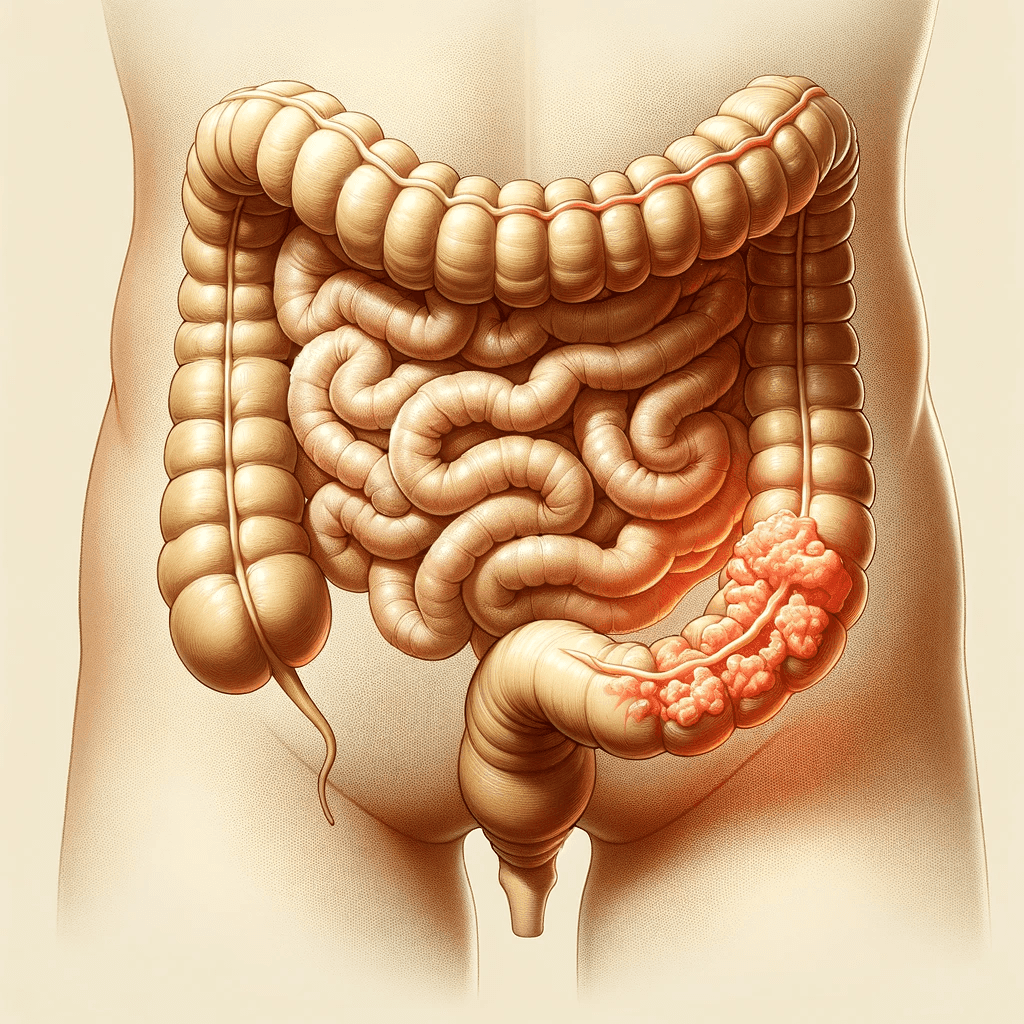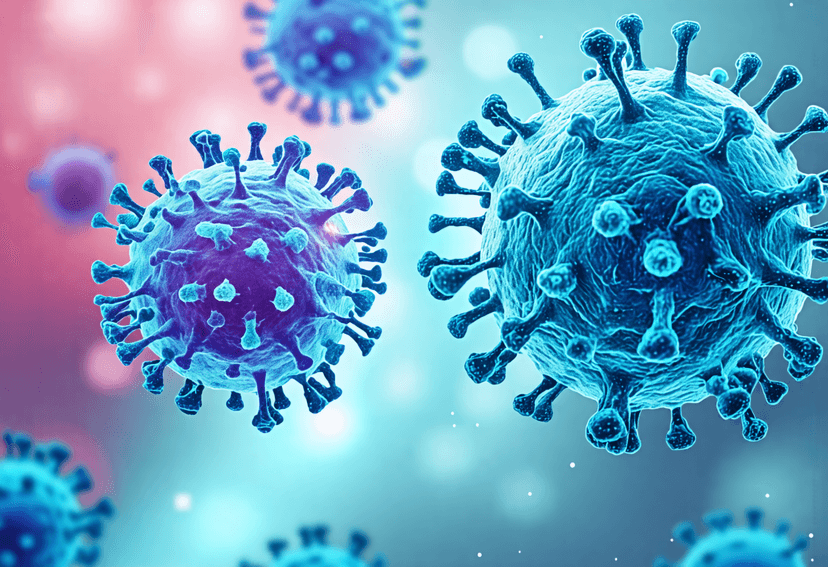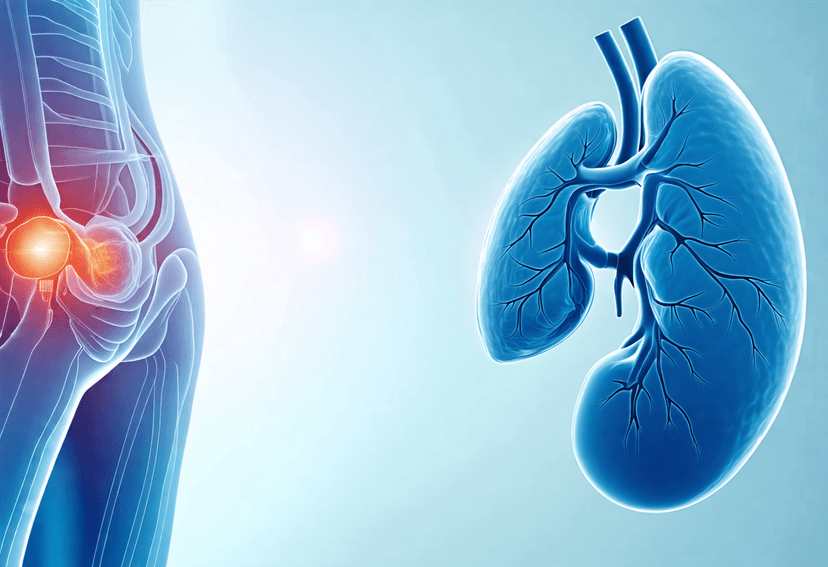
Colorectal Cancer: Symptoms, Causes, Risk Factors, and Prevention
19 Jun, 2024
Colorectal cancer, also known as bowel cancer, poses a substantial global health challenge as the third most prevalent cancer worldwide. Originating in the colon or rectum, it carries significant implications for both mortality and morbidity rates. Recognizing its symptoms, understanding its causes, and identifying key risk factors are critical steps towards early detection and successful treatment. This blog seeks to provide a thorough exploration of colorectal cancer, aiming to enhance awareness and encourage proactive screening to improve patient outcomes.
Symptoms of Colorectal Cancer
Early-stage colorectal cancer often does not present any symptoms, making regular screening vital. As the disease progresses, several signs may indicate the presence of colorectal cancer. These include:
Most popular procedures in India
1. Changes in Your Bathroom Routine: Feeling constipated or having diarrhoea that doesn't go away after a few days.
Wellness Treatments
Give yourself the time to relax
Lowest Prices Guaranteed!

Lowest Prices Guaranteed!
2. Blood in Your Stool: Seeing bright red blood or very dark stools.
3. Abdominal Discomfort: Cramps, pain, or a feeling of fullness in your belly, even after you've gone to the bathroom.
4. Unexplained Weight Loss: Dropping pounds without trying.
5. Feeling Tired: Being unusually worn out, often because of anaemia from losing blood.
6. Never Quite Emptying Your Bowels: Feeling like you're not done after you go to the bathroom.
7. Feeling Queasy: Nausea or throwing up, especially if it comes with other tummy issues.
8. Low Iron Levels: Anemia that shows up in blood tests, can mean there's bleeding in your gut.
These symptoms might not always point to colorectal cancer, but it's important to get them checked out if they stick around or get worse over time. Early detection makes a big difference in treating colorectal cancer effectively.
Causes of Colorectal Cancer
Colorectal cancer arises from a combination of genetic, environmental, and lifestyle factors. Here’s a concise overview of the primary causes:
1. Genetic Mutations
- Inherited Mutations: Conditions like Lynch Syndrome (HNPCC) and Familial Adenomatous Polyposis (FAP) significantly increase the risk.
- Acquired Mutations: Most cases result from mutations acquired over a lifetime due to environmental factors, lifestyle choices, or random DNA replication errors.
2. Lifestyle and Dietary Factors
- Diet: High consumption of red and processed meats increases risk, while diets rich in fruits, vegetables, and whole grains reduce it.
- Physical Inactivity: A sedentary lifestyle contributes to obesity, increasing cancer risk.
- Obesity: Excess body fat, especially around the abdomen, is linked to higher cancer risk.
- Smoking: Long-term smoking increases the likelihood of colorectal cancer.
- Alcohol: Heavy alcohol use is associated with increased risk.
3. Medical Conditions
- Inflammatory Bowel Disease (IBD): Chronic conditions like Crohn's disease and ulcerative colitis heighten risk due to long-term colon inflammation.
- Diabetes: Type 2 diabetes is linked to a higher risk of colorectal cancer.
4. Age and Family History
- Age: Risk increases significantly after 50, though younger adults are increasingly affected.
- Family History: A family history of colorectal cancer or polyps, especially in first-degree relatives, elevates risk.
5. Environmental Factors
- Radiation: Previous radiation therapy to the abdomen or pelvis increases risk.
- Occupational Hazards: Exposure to certain chemicals in industries like metalworking and rubber manufacturing may heighten risk.
Colorectal cancer is caused by a mix of genetic, lifestyle, and environmental factors. While some risks like age and genetics can't be changed, others, such as diet, physical activity, and smoking, can be modified to reduce risk. Regular screenings and a healthy lifestyle are essential for prevention and early detection. Consult your healthcare provider for personalized advice and screening recommendations.
Risk Factors for Colorectal Cancer
Several factors can increase your chances of developing colorectal cancer. Here's what you should know:
1. Age: The risk tends to go up as you get older, especially after reaching 50 years.
2. Family History: If close relatives like parents or siblings have had colorectal cancer or certain types of polyps, your risk may be higher.
3. Personal History: If you've had colorectal cancer or polyps before, your chances of developing it again are increased.
4. Inherited Syndromes: Conditions like Lynch syndrome or familial adenomatous polyposis (FAP) run in families and can significantly raise your risk.
5. Inflammatory Bowel Disease (IBD): Conditions like ulcerative colitis or Crohn's disease, which cause long-term inflammation in the intestines, can increase your risk over time.
6. Diet: Diets high in red and processed meats, and low in fibre, fruits, and vegetables may contribute to a higher risk.
7. Lifestyle Choices: Not getting enough exercise, being overweight, smoking, and heavy alcohol use have all been linked to an increased risk.
8. Race and Ethnicity: African Americans have a higher risk compared to other racial or ethnic groups.
9. Diabetes: People with type 2 diabetes may have a slightly higher risk of colorectal cancer.
10. Radiation Therapy: Previous radiation treatment for certain cancers, especially in the abdomen or pelvic area, can increase your risk.
Knowing these factors can help you and your healthcare provider take steps to lower your risk and catch any potential issues early through regular screenings and healthy lifestyle choices.
Preventive Measures
While some risk factors, such as age and family history, cannot be changed, several lifestyle modifications can reduce the risk of colorectal cancer:
1. Healthy Diet: Eating a diet rich in fruits, vegetables, whole grains, and lean proteins while limiting red and processed meats. Foods high in fibre can help keep your digestive system healthy.
2. Regular Exercise: Engaging in regular physical activity to maintain a healthy weight. Exercise helps to reduce inflammation and improve immune function.
3. Avoiding Tobacco and Excessive Alcohol: Quitting smoking and limiting alcohol consumption. Both smoking and heavy alcohol use are linked to increased cancer risk.
4. Regular Screening: Undergoing regular screening tests, such as colonoscopies, to detect and remove precancerous polyps. Screening can prevent colorectal cancer by identifying polyps before they become cancerous.
Types of Screening Tests
Several screening tests can help detect colorectal cancer early:
1. Colonoscopy: A procedure in which a long, flexible tube with a camera on the end is inserted into the rectum to examine the entire colon. Polyps and some cancers can be removed during the procedure.
2. Fecal Occult Blood Test (FOBT): A test that checks for hidden blood in the stool, which can be an early sign of cancer.
3. Fecal Immunochemical Test (FIT): Similar to FOBT, this test detects blood in the stool but uses antibodies and is more specific to bleeding in the lower gastrointestinal tract.
4. Sigmoidoscopy: Similar to a colonoscopy, but only examines the rectum and the lower part of the colon.
5. CT Colonography (Virtual Colonoscopy): A CT scan that provides detailed images of the colon and rectum. Polyps and cancers can be detected, but a follow-up colonoscopy is needed to remove polyps.
How can HealthTrip assist with your treatment?
If you're seeking colorectal cancer treatment, let HealthTrip be your compass. We support you throughout your medical journey with the following:
- Access to top doctors in 38+ countries and the largest health travel platform.
- Partnerships with 1500+ hospitals, including Fortis, Medanta, and more.
- Treatments in neuro, cardiac care, transplants, aesthetics, and wellness.
- Post-treatment care and assistance.
- Teleconsultations with leading doctors at $1/minute.
- Over 61K patients served.
- Access Top treatments and packages, such as Angiograms and many more.
- Gain insights from genuine patient experiences and testimonials.
- Stay updated with our medical blog.
- 24/7 unwavering support, from hospital formalities to travel arrangements or emergencies.
Hear from our satisfied patients
Colorectal cancer is a significant health concern, yet early detection and lifestyle adjustments can greatly mitigate its risks. Recognizing symptoms, understanding causes, and acknowledging risk factors are pivotal in preventing and managing colorectal cancer. Regular screenings and adopting a healthy lifestyle are crucial for prevention. If you notice any symptoms or have risk factors, consulting your healthcare provider for proper screening and guidance is essential.
Related Blogs

Understanding Sarcoma Cancer Causes
Learn about the causes and risk factors of sarcoma cancer

The Impact of Lifestyle Choices on Sarcoma Cancer
Discover how lifestyle choices can affect sarcoma cancer risk

Diet and Nutrition's Role in Sarcoma Cancer Prevention
Learn how diet and nutrition can help prevent sarcoma cancer

The Impact of Viral Infections on Sarcoma Cancer
Discover how viral infections can increase sarcoma cancer risk

Environmental Toxins and Sarcoma Cancer Risk
Explore the link between environmental toxins and sarcoma cancer

Bladder Cancer: Risk Factors and Symptoms
Stay informed about bladder cancer, its risk factors, and symptoms











